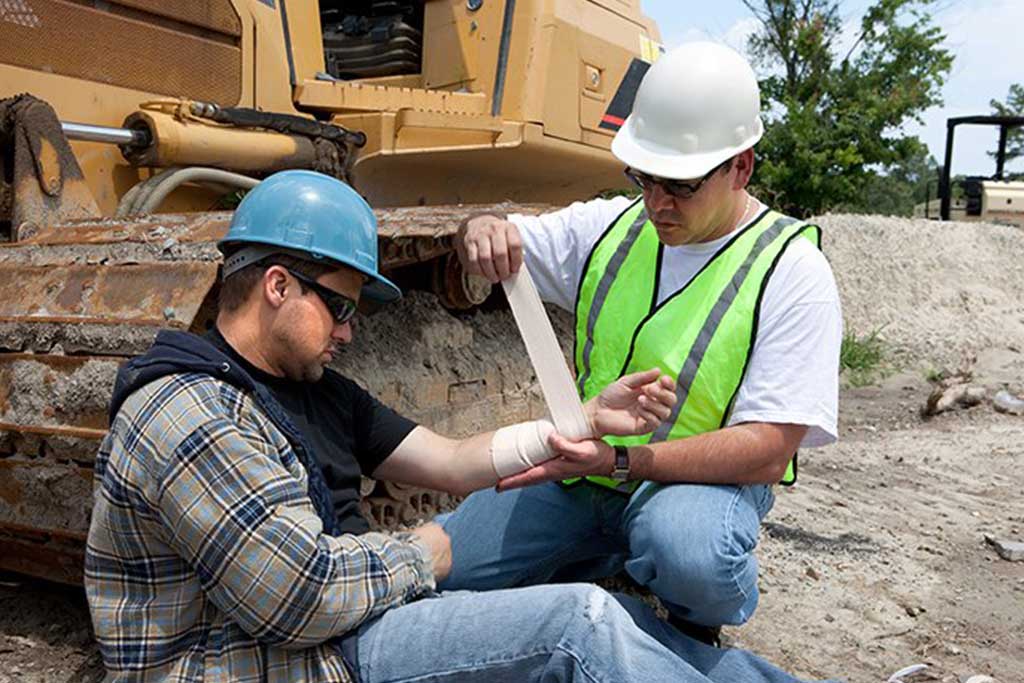Can an Employee be Terminated While on Workers’ Compensation?
What happens if you are a New York employee who becomes injured on the job, and your employer fires you while you are receiving worker's compensation? In New York, your employer can fire you while you are on workers’ compensation, but the issue is somewhat complicated. You may still have options to protect your income if your employer has fired you while you are receiving workers’ compensation.
Being Fired While Using the Family Medical Leave Act (FMLA)
You can be fired while you are receiving workers’ compensation benefits, but you cannot be fired while taking time off under the Family Medical Leave Act (FMLA). The FMLA is a federal law passed in 1993 that allows qualifying employees to take up to 12 weeks of unpaid leave. The employee's job is protected during these 12 weeks. Many individuals take workers’ compensation benefits through the state of New York at the same time they are using FMLA leave.
For example, suppose an employee becomes injured by a heavy machine on a construction site. He may need to take time off using FMLA benefits, but he has also been injured on the job and qualifies for workers’ compensation benefits. He can choose to begin using these benefits at the same time.
Keep in mind that the FMLA does not provide any benefits or pay. It only protects your right to return to your job within 12 weeks. Many employees are afraid to use their federally guaranteed FMLA leave because they are worried their employers will fire them for taking time off work. However, as long as you follow the FMLA guidelines, your job will be protected, and your employer cannot fire you in retaliation for taking leave. Employees protected by the FMLA must receive written notice of their rights under federal law. Typically, employees will receive this type of written notice around the same time their workers’ compensation case begins.
What Can You Do if You are Fired While Using FMLA Benefits?
Suppose an employee named Jane becomes injured at work after she trips on an exposed wire and breaks her wrist. She files a workers’ compensation claim through the state of New York. After she filed her claim, she began her 12 weeks of unpaid leave using her rights under the FMLA. During this 12-week timeframe, she also receives cash benefits through workers’ compensation.
Her manager is irritated that she is taking time off and still getting paid, so he chooses to fire her during week 11 of her time off. The termination of her job would be unlawful in this case because she was fired during a protected 12-week period. The FMLA gives employees who have been fired a right to file a claim against their employees for reinstatement of their jobs and damages. If you have been wrongfully fired while using FMLA benefits, it is crucial that you discuss your case with an employment lawyer as soon as possible.
Is Being Fired While on Workers’ Compensation Unlawful Discrimination?
Do employees have a valid discrimination claim after an employer fires them while receiving workers’ compensation benefits? Under New York law, being fired while receiving workers’ compensation benefits is not considered discrimination. Employers are allowed to replace you if you cannot perform your work because you have been injured on the job. However, an employer cannot fire an employee solely based on the employee applying for workers’ compensation. Additionally, an employer cannot fire an employee simply because the employee acted as witnesses in another employee's workers’ compensation claim. Under New York workers’ compensation law, these types of firings would be considered unlawful, and the employee could seek damages and restitution of his or her job.
Section 120 Claims
Have you been fired while receiving workers’ compensation solely because you filed for workers’ compensation, or were you a witness in another employee’s workers’ compensation claim? If so, you have a right to make a legal claim against your employer under section 120 of New York workers’ compensation law. Filing a claim under section 120 requires you to meet several different stipulations. You must prove that you were wrongfully terminated because of filing a workers’ compensation claim or acting as a witness in someone else's claim.
Most New York employers have an in-depth understanding of the workers’ compensation law and section 120 claims. As a result, they are conscientious when they fire employees while on workers’ compensation to avoid dealing with a section 120 claim. If you believe you have been wrongfully fired, the best thing you can do is discuss your case with a lawyer. Your lawyer will be able to investigate your case and protect your right to compensation.
Unemployment Insurance After Being Fired While on Workers’ Compensation
If you have been fired while receiving workers’ compensation benefits, there could still be ways for you to protect your income. You are probably concerned about providing for yourself and your loved ones. However, you may still be able to collect unemployment insurance benefits if you have a partial degree of disability.
Have Questions About Workers’ Compensation? The Team Can Help
Have you been fired while obtaining workers’ compensation benefits in New York? Are you concerned about whether you will be able to provide for your family? It is worth taking the time to discuss your case with an experienced employment lawyer. Determining if you were unlawfully fired while on workers’ compensation benefits can be difficult without the help of an experienced lawyer.
At Stanley Law Offices, We have helped many New York residents bring claims against their employers for violating New York and federal laws. The facts of your case will matter significantly in answering your question. We will carefully review your case and provide you with experienced legal advice, helping you navigate the process from start to finish. Contact us today to schedule your initial consultation.

